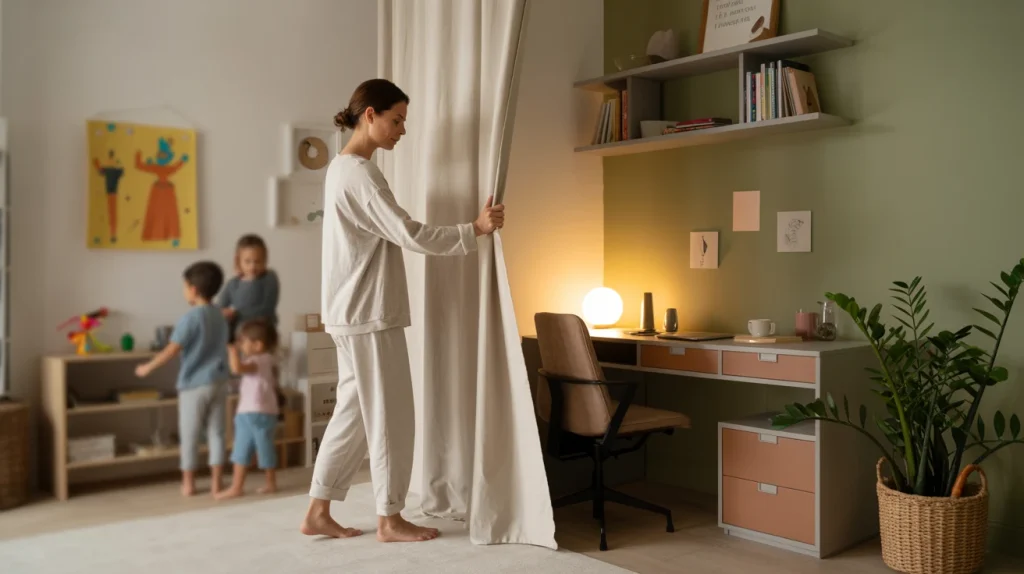I still remember sitting in that crowded office, feeling my heart race every time someone approached my desk. The constant chatter, surprise meetings, and pressure to network made my anxiety spike through the roof!
As someone who’s always been more comfortable working behind the scenes, I quickly realized that not all jobs are created equal for people like us. Some careers can actually make our anxiety worse, while others feel like a perfect fit for our introverted nature.
If you’re searching for the best jobs for introverts with anxiety, you’re definitely not alone. Many of us struggle to find work environments where we can thrive without constantly feeling overwhelmed or drained.
The good news? There are tons of amazing career options that play to our strengths rather than our weaknesses.
Let’s check them out!
Top Remote Jobs Perfect for Introverts with Anxiety

Remote work has been a game-changer for anxious introverts. Working from home eliminates so many triggers while giving us the control we need to manage our energy and anxiety levels.
#1. Content Writing and Copywriting
This is probably my favorite recommendation for fellow introverts! Content writing lets you express yourself through words without the pressure of face-to-face interactions.
You get to research interesting topics, craft compelling stories, and help businesses connect with their audience. The best part? Most communication happens via email or project management tools.
What makes it perfect:
- Work independently on your own schedule
- Minimal meetings or video calls required
- Express creativity through writing
- Build expertise in topics you’re passionate about
Many content writers start as freelancers and eventually build steady client relationships. Upwork and similar platforms make it easy to find your first writing gigs.
#2. Graphic Design
If you’re more visual than verbal, graphic design might be your calling! This field combines creativity with technical skills, & much of the work happens solo.
Designers spend most of their time focused on projects, working with design software, and bringing creative visions to life. Client communication usually happens through email with occasional calls to discuss project details.
Why it works for us:
- Highly creative and personally fulfilling
- Most work done independently
- Clear project deadlines and expectations
- Portfolio speaks louder than personality
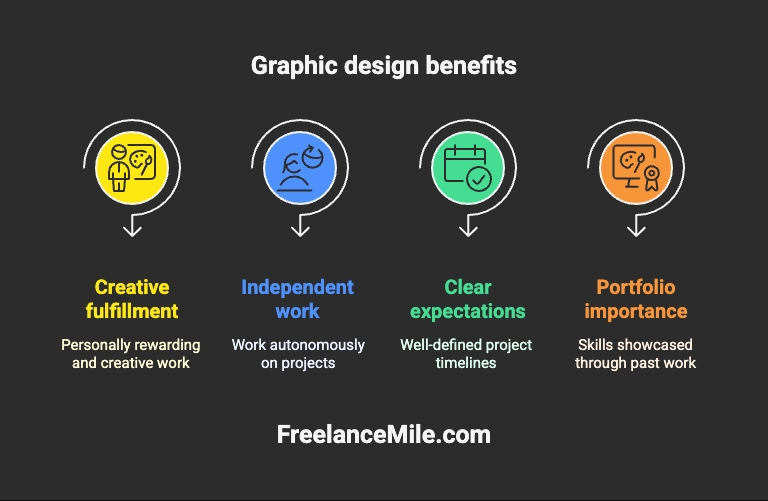
#3. Virtual Assistant Services
Don’t let the word “assistant” fool you – this role has evolved way beyond basic administrative tasks! Modern virtual assistants are skilled professionals who help businesses run smoothly from behind the scenes.
You might manage social media accounts, handle customer service emails, organize digital files, or coordinate schedules. The variety keeps things interesting while maintaining that comfortable distance from in-person interactions.
Tech Jobs That Embrace Introversion
The tech industry has always been more welcoming to introverted personalities. Many tech roles actually require the kind of deep focus and analytical thinking that comes naturally to us!
#4. Web Development
Web development is like solving puzzles all day long – and I mean that in the best possible way! You get to build websites and applications that millions of people might use.
The work requires intense concentration, which means colleagues generally respect your need for quiet focus time. Plus, the tech community is incredibly supportive, with tons of online resources and forums where you can learn and get help.
Perfect aspects for anxious introverts:
- Problem-solving focused rather than people-focused
- High demand means job security
- Excellent remote work opportunities
- Clear, measurable results
#5. Data Analysis

If you love finding patterns and making sense of information, data analysis could be your dream job! This role involves working with numbers, creating reports, & helping companies make better decisions based on data insights.
Most of your day is spent working with spreadsheets, databases, and analysis tools. When you do present findings, it’s usually to small groups with prepared materials – no impromptu speaking required!
#6. Software Testing (QA)
Quality assurance testing is all about attention to detail and methodical thinking – skills that many introverts naturally possess! QA testers make sure software works properly before it reaches users.
This role involves following detailed test plans, documenting bugs, and working closely with development teams. The communication is structured and task-focused, which feels much more comfortable than random small talk.
Creative Fields for Anxious Introverts
Creativity and introversion often go hand in hand. Many artistic fields offer the perfect blend of personal expression and professional independence.
#7. Photography
Photography lets you capture beautiful moments while working mostly alone or with small groups! Whether you specialize in landscapes, portraits, or events, you control the pace and style of interactions.
Many photographers build successful businesses around their unique artistic vision. Social media platforms like Instagram have made it more comfortable than ever to showcase your work and attract clients.
Why photography works:
- Artistic expression and technical skill combined
- Flexible schedule and location independence
- Build business around your interests
- Limited need for extensive verbal communication
#8. Video Editing
With video content exploding across all platforms, skilled video editors are in huge demand! This behind-the-scenes role lets you bring stories to life through editing software.
You’ll work with raw footage, add effects, create smooth transitions, and basically make magic happen in post-production. Most communication with clients happens through email and shared project files.
#9. Music Production
If you’re musically inclined, producing music from your home studio could be incredibly fulfilling! Modern technology makes it possible to create professional-quality tracks without expensive equipment.
Music production combines technical skills with artistic creativity. You can work with artists remotely, create background music for videos, or even develop your own musical projects.
Why Traditional Jobs Don’t Work for Anxious Introverts
Before we dive into the good stuff, let’s talk about why so many typical jobs feel like torture for us introverted folks with anxiety.
Most traditional workplaces are designed for extroverts. They love open office layouts, constant collaboration, and impromptu brainstorming sessions. For someone with social anxiety, this can feel like being plunged into the deep end without knowing how to swim!
The main challenges we face include:
- Overwhelming social interactions throughout the day
- Pressure to speak up in meetings and group settings
- Limited quiet time to recharge and focus
- Unpredictable social situations that trigger anxiety
But here’s what I’ve learned after years in the digital marketing world – the key is finding roles that match our natural working style. When we do that, we don’t just survive; we absolutely flourish!
Which Is Better for Introverts with Anxiety: Freelancing or Remote Employment?
This is a question I get asked all the time! Both freelancing and remote employment have their benefits for introverts dealing with anxiety.
Benefits of Freelancing
Freelancing gives you ultimate control over your work environment and client relationships. You can choose projects that interest you, set your own schedule, and work from wherever you feel most comfortable.
The downside? You’re responsible for finding clients, managing finances, and handling all business aspects. This can initially feel overwhelming, but many introverts find the independence worth the extra responsibility.
Freelancing advantages:
- Complete control over your schedule
- Choose your clients and projects
- Work from your ideal environment
- No office politics or forced social interactions
Benefits of Remote Employment
Remote employment offers stability and benefits while still providing the comfortable work environment we crave. You get regular income, health benefits, and clear job responsibilities without the anxiety of in-person office life.
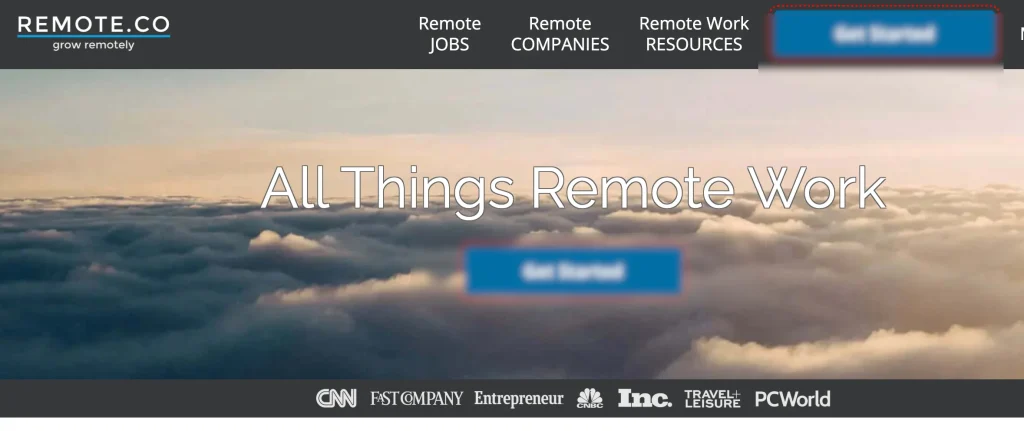
Many companies now offer fully remote positions specifically designed for independent workers. Remote.co and similar job boards specialize in these opportunities.
Building Your Career Gradually
The key to success is beginning small & building confidence over time. You don’t need to completely change careers overnight!
Start with Side Projects
I always recommend beginning with small side projects while maintaining your current income. This approach reduces financial pressure while letting you explore new fields and build skills gradually.
Take on small freelance projects, create sample work for your portfolio, or contribute to open-source projects. These experiences help you understand what you enjoy and what comes naturally.
Develop Your Skills Systematically
Focus on developing one skill at a time rather than trying to learn everything at once. Online learning platforms like Coursera offer courses specifically designed for career changers.
Effective skill-building strategies:
- Choose one primary skill to focus on
- Practice consistently rather than intensively
- Join online communities in your chosen field
- Create projects that demonstrate your abilities
Network in Comfortable Ways
Networking doesn’t have to mean attending crowded events or making small talk with strangers! Introverts can build professional relationships through online communities, social media, and collaborative projects.
Engage in industry forums, comment thoughtfully on professional blogs, and share your own insights through content creation. These activities build your reputation while playing to your strengths.
Managing Anxiety in Your New Career
Even in the perfect job, anxiety can still pop up occasionally. Having strategies to manage these moments is crucial for long-term success.
Create Structured Routines
Anxiety often stems from uncertainty, so creating predictable routines can provide tremendous comfort. Establish consistent work hours, break times, and daily practices that help you feel grounded.
I’ve found that having a morning routine before starting work helps set a positive tone for the entire day. This might include meditation, exercise, or simply enjoying a quiet cup of coffee.
Set Healthy Boundaries
Learn to say no to projects, meetings, or commitments that don’t align with your energy levels or anxiety triggers. This isn’t being difficult – it’s being professional about your working conditions.
Boundary-setting examples:
- Limiting video calls to specific days or times
- Requesting agenda items in advance of meetings
- Setting specific hours for client communication
- Taking regular breaks throughout the day
Build Support Systems
Connect with other introverts and remote workers who understand your challenges! Online communities, professional groups, and even virtual coworking sessions can provide social connection without overwhelming stimulation.
LinkedIn groups focused on remote work and introversion can be great places to find like-minded professionals who share similar experiences and advice.
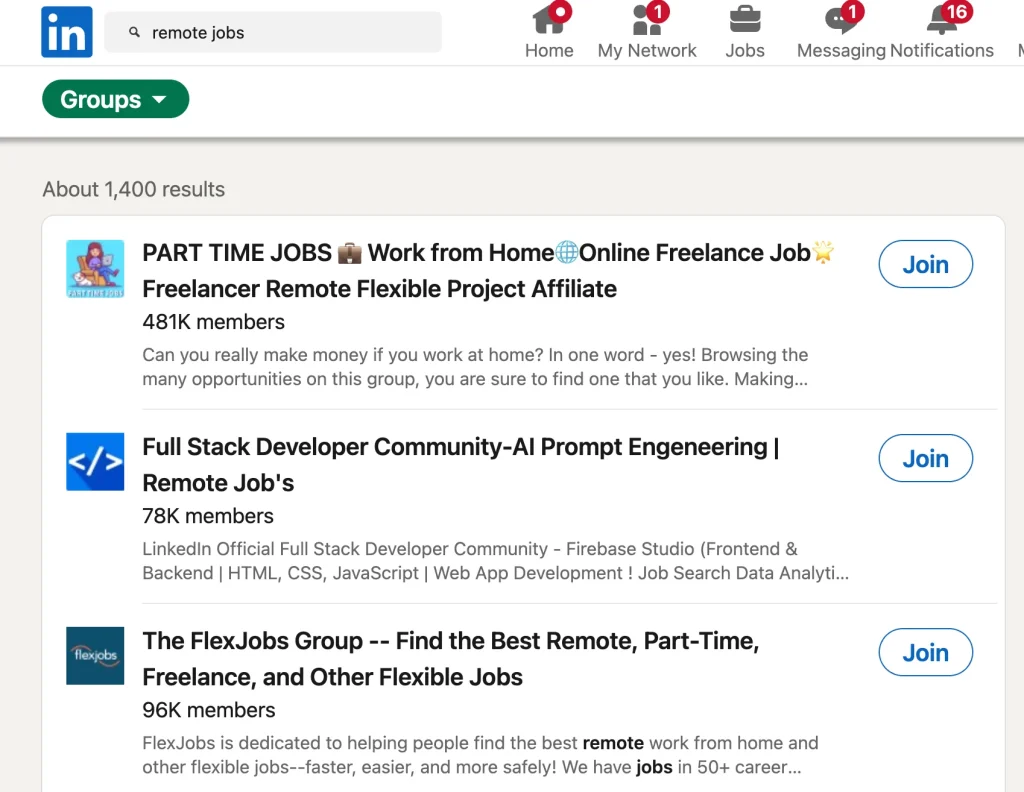
Financial Considerations and Planning
Money matters can create additional anxiety, so let’s address them head-on! Transitioning to a new career requires some financial planning, but it doesn’t have to be scary.
Building a Transition Fund
Before making any major career moves, try to save at least 3-6 months of expenses. This emergency fund reduces financial pressure and gives you breathing room to establish yourself in a new field.
Start small – even saving $50 per month adds up over time. The goal is reducing financial anxiety so you can focus on building your new career.
Understanding Income Patterns
Different career paths have different income patterns. Freelancing might mean irregular income at first, while remote employment typically offers steady paychecks.
Research salary ranges in your chosen field and factor in benefits, taxes, and business expenses. This planning helps set realistic expectations and reduces financial surprises.
Success Stories and Realistic Expectations
I love hearing from people who’ve successfully transitioned to anxiety-friendly careers! While everyone’s journey is different, there are common patterns that lead to success.
Common Success Factors
Most successful career changers share certain approaches: they start gradually, focus on skill development, and remain patient with the process. They also tend to choose fields that genuinely interest them rather than just chasing money.
The timeline varies greatly – some people transition within months, while others take years to fully establish themselves. Both approaches can work depending on your situation and risk tolerance.
Realistic Timeline Expectations
Expect the transition to take 6-18 months if you’re actively working on it part-time. Full-time focus can accelerate this, but don’t rush the process at the expense of your mental health.
Typical transition phases:
- Months 1-3: Skill building and exploration
- Months 4-8: First projects and portfolio development
- Months 9-12: Establishing regular income streams
- Months 12+: Growing and refining your career
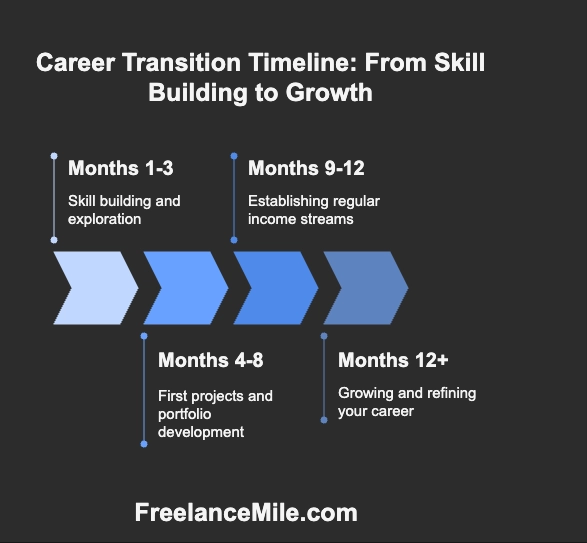
Conclusion
Finding the best jobs for introverts with anxiety isn’t just about avoiding our triggers – it’s about discovering careers where our natural strengths become superpowers!
Whether you’re drawn to creative fields, tech roles, or service-based businesses, there are incredible opportunities for people who prefer working independently and thoughtfully. The key is matching your interests and skills with work environments that support your wellbeing.
Remember, this journey doesn’t have to happen overnight. Start exploring, building skills, and connecting with others who’ve walked similar paths. Your ideal career is out there waiting for you!
What’s the first step you’re going to take toward finding your perfect anxiety-friendly career?
The adventure starts now, and I’m excited to see where it leads you!





